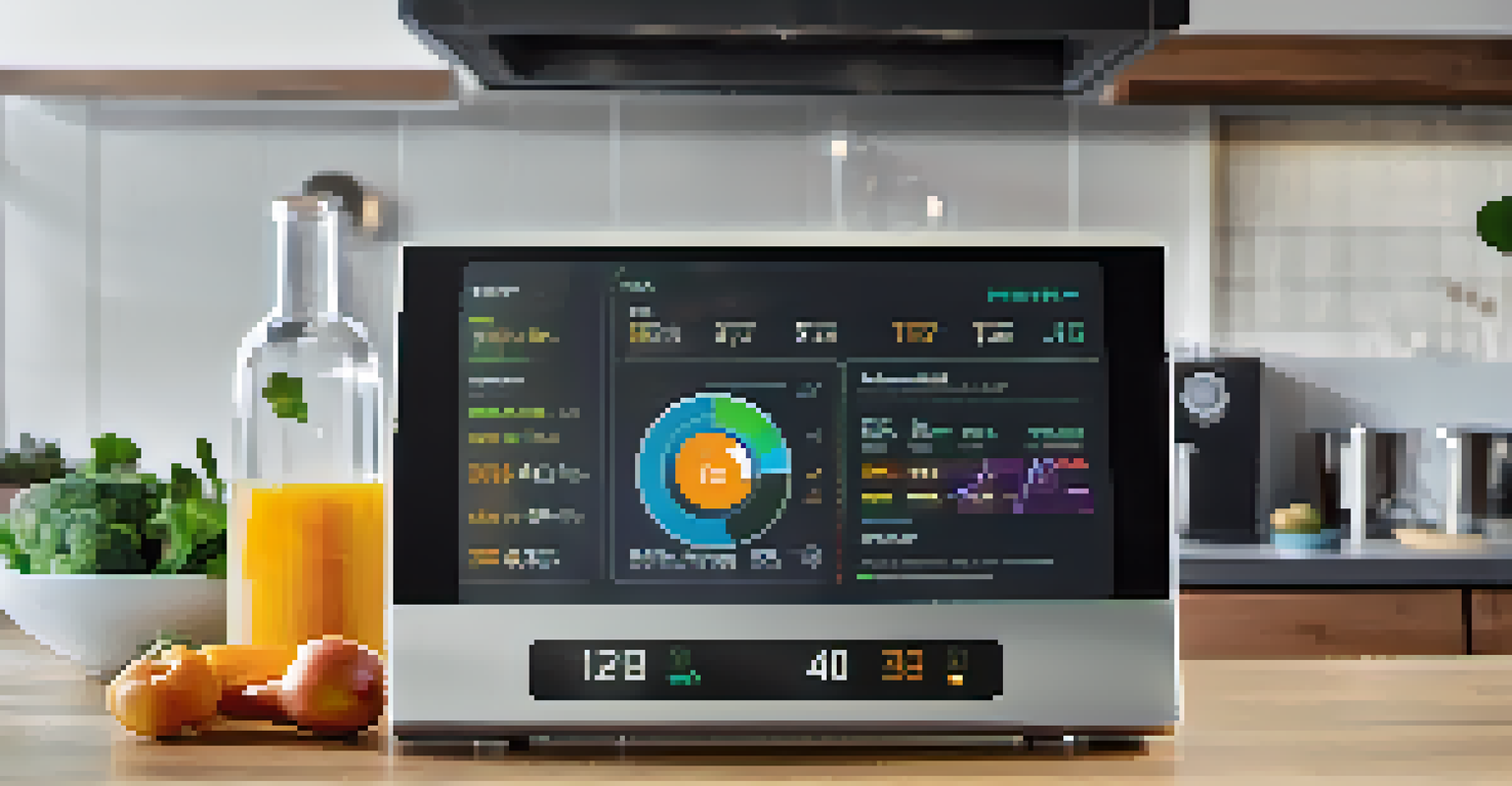How Smart Home Technology Can Help You Save Money

Understanding Smart Home Technology Basics
Smart home technology refers to devices that connect to the internet, allowing you to control various aspects of your home remotely. Imagine being able to adjust your thermostat or turn off lights with just a tap on your smartphone. This connectivity not only offers convenience but also opens up opportunities to save money on your utility bills.
Technology is best when it brings people together.
For example, smart thermostats learn your schedule, adjusting the temperature when you’re away and ensuring optimal energy use. This means you won’t be heating or cooling an empty house, which can lead to significant savings over time. It’s like having a personal assistant for your energy consumption.
Additionally, many smart home devices come with energy monitoring features. By tracking your energy usage, you can pinpoint areas where you might be wasting money and make informed adjustments, helping you become more eco-friendly while saving your hard-earned cash.
Reducing Energy Costs with Smart Thermostats
One of the most popular smart home devices is the smart thermostat, which can lead to substantial savings on heating and cooling bills. By learning your routine, these thermostats can adjust temperatures based on when you are home or away, making sure energy isn’t wasted. Think of it as a thermostat that knows you better than you know yourself!

For instance, if you usually leave for work at 8 AM and return at 6 PM, your smart thermostat can lower the temperature during those hours when you're not there. This simple adjustment can lead to a noticeable reduction in your monthly energy costs, often paying for the device itself within a year.
Smart Tech Saves Energy and Money
Smart home devices, like thermostats and lighting systems, optimize energy use, leading to significant savings on utility bills.
Moreover, many smart thermostats provide reports on your energy usage trends, helping you make more informed choices about your heating and cooling habits. This valuable insight can be instrumental in further lowering your bills as you become more aware of your consumption patterns.
Smart Lighting Solutions for Cost Savings
Smart lighting systems are another fantastic way to save money. These systems allow you to control your lights remotely, schedule them to turn on or off at specific times, or even adjust brightness levels. Imagine never having to worry if you left a light on again while out for the day!
The future is already here — it's just not very evenly distributed.
By using LED bulbs in conjunction with smart lighting, you can save even more. LED bulbs consume significantly less energy than traditional incandescent bulbs, and when paired with smart technology, you can ensure they’re only on when you need them. This can lead to a dramatic decrease in your electricity bill.
Additionally, many smart lighting systems allow you to create scenes or moods for different times of the day. This versatility not only enhances your living environment but also encourages you to be more mindful of your energy use, ultimately leading to cost savings.
Home Security Systems That Save You Money
Investing in a smart home security system can also be a smart financial move. These systems often include features like motion sensors, video surveillance, and remote monitoring, which can deter potential intruders. The peace of mind you gain is invaluable, but there’s also a financial aspect to consider.
Many insurance companies offer discounts on home insurance premiums for homeowners with smart security systems in place. By reducing the risk of theft or damage, you could see a significant drop in your monthly insurance costs, which adds up over time.
Insurance Discounts with Security Systems
Installing smart security systems can lower home insurance premiums, providing financial benefits alongside enhanced safety.
Moreover, smart security systems can notify you of unusual activity in real time, allowing you to respond quickly and potentially avoid costly damages. It’s like having a vigilant guardian watching over your home, ensuring your safety and your wallet.
Smart Appliances: Efficiency Meets Savings
Smart appliances are designed to be more energy-efficient, contributing to lower utility bills. For example, smart refrigerators can monitor their contents and adjust their cooling settings accordingly, while smart washing machines can optimize water and energy use based on load size. This efficiency translates directly into savings.
Consider a smart dishwasher that runs during off-peak hours when electricity rates are lower. By scheduling your appliance to work when energy costs are down, you can save a notable amount on your energy bill each month. It’s like having a personal assistant that also understands the best times to save you money.
Additionally, many smart appliances can be controlled from your smartphone, allowing you to manage them even when you’re not at home. This remote control means you can ensure appliances are running efficiently and only when necessary, leading to further savings.
Monitoring Your Energy Usage with Smart Meters
Smart meters provide real-time data on your home’s energy consumption, helping you understand where your money is going. By having access to this information, you can identify trends and make adjustments to your habits. It’s like having a financial dashboard for your energy usage!
For example, if you notice that your energy spikes during certain times of day, you might adjust your usage habits to avoid peak rates. This simple awareness can lead to significant savings, as many utility companies charge more during peak hours.
Long-Term Gains from Smart Homes
While the upfront costs may be high, the long-term savings and increased property value make smart home technology a wise investment.
Furthermore, smart meters can often be integrated with other smart home devices, allowing for a comprehensive view of your energy consumption. This interconnectedness enhances your ability to save money while making your home more efficient.
Saving Water with Smart Irrigation Systems
If you have a garden or lawn, smart irrigation systems can help you save on water bills. These systems use weather data and soil moisture levels to determine how much water your plants need, ensuring they receive the right amount without wasting any. It’s like having a personal gardener who knows exactly when to water!
For instance, if it rains, your smart irrigation system can skip watering that day, preventing unnecessary water usage. This not only helps the environment but also translates to lower water bills, especially during hot summer months when water consumption can skyrocket.

Many smart irrigation systems can be controlled remotely via an app, allowing you to make adjustments based on current weather conditions or your schedule. This flexibility ensures that you’re conserving resources while keeping your garden healthy and thriving.
The Long-Term Financial Benefits of Smart Homes
While the initial investment in smart home technology can seem daunting, the long-term financial benefits are worth considering. From energy savings to reduced insurance premiums, the cumulative impact can lead to significant cost reductions over the years. It’s an investment that pays for itself in many ways.
In addition, smart home technology often increases property value. Many homebuyers are looking for energy-efficient homes equipped with the latest technology, making your property more attractive in a competitive market. This means that not only are you saving money while you live there, but you could also see a return on your investment when you sell.
Lastly, as technology continues to evolve, smart home devices are becoming more affordable and accessible. This trend means that adopting smart technology is not just a luxury anymore; it’s quickly becoming a smart financial decision for homeowners looking to save money.